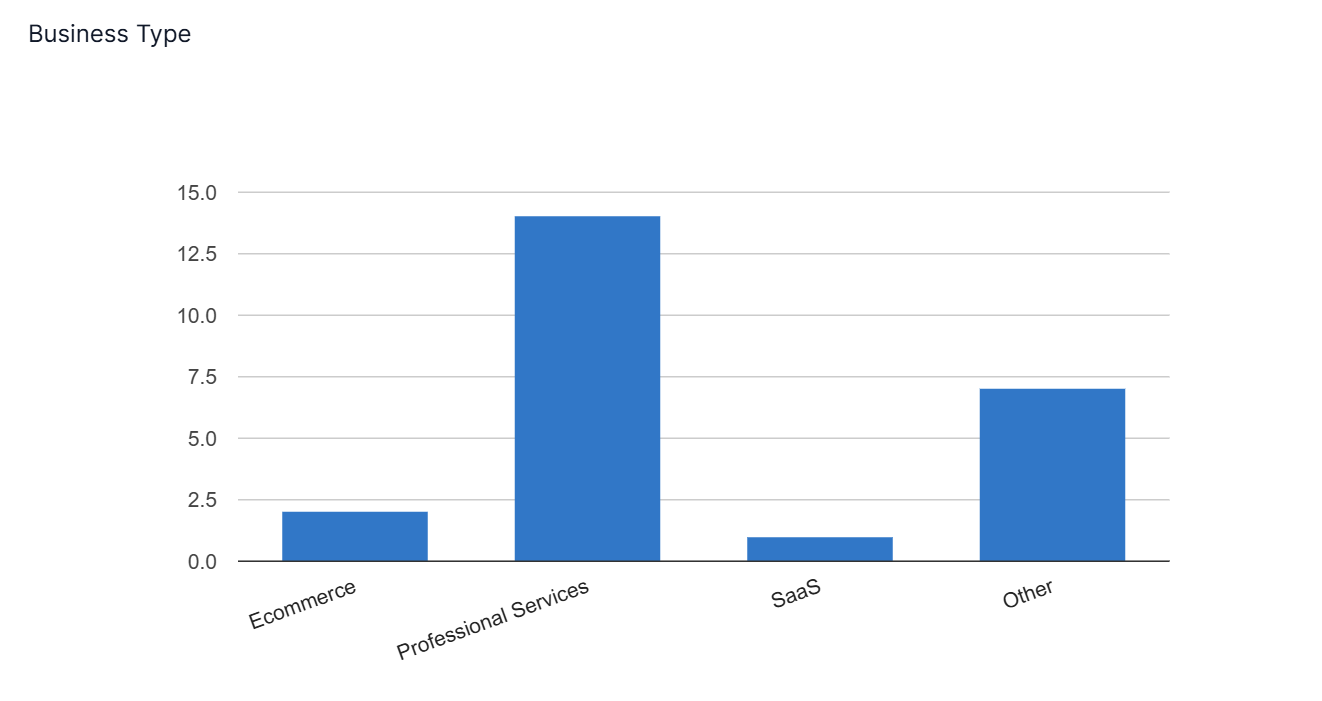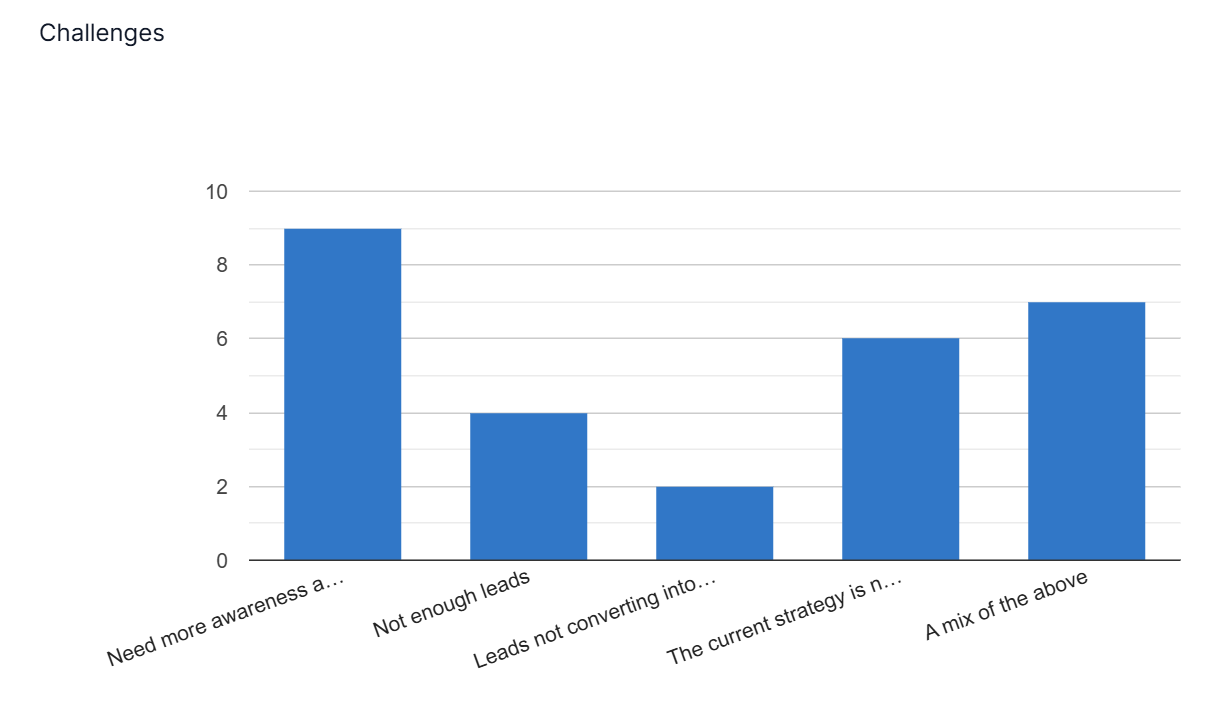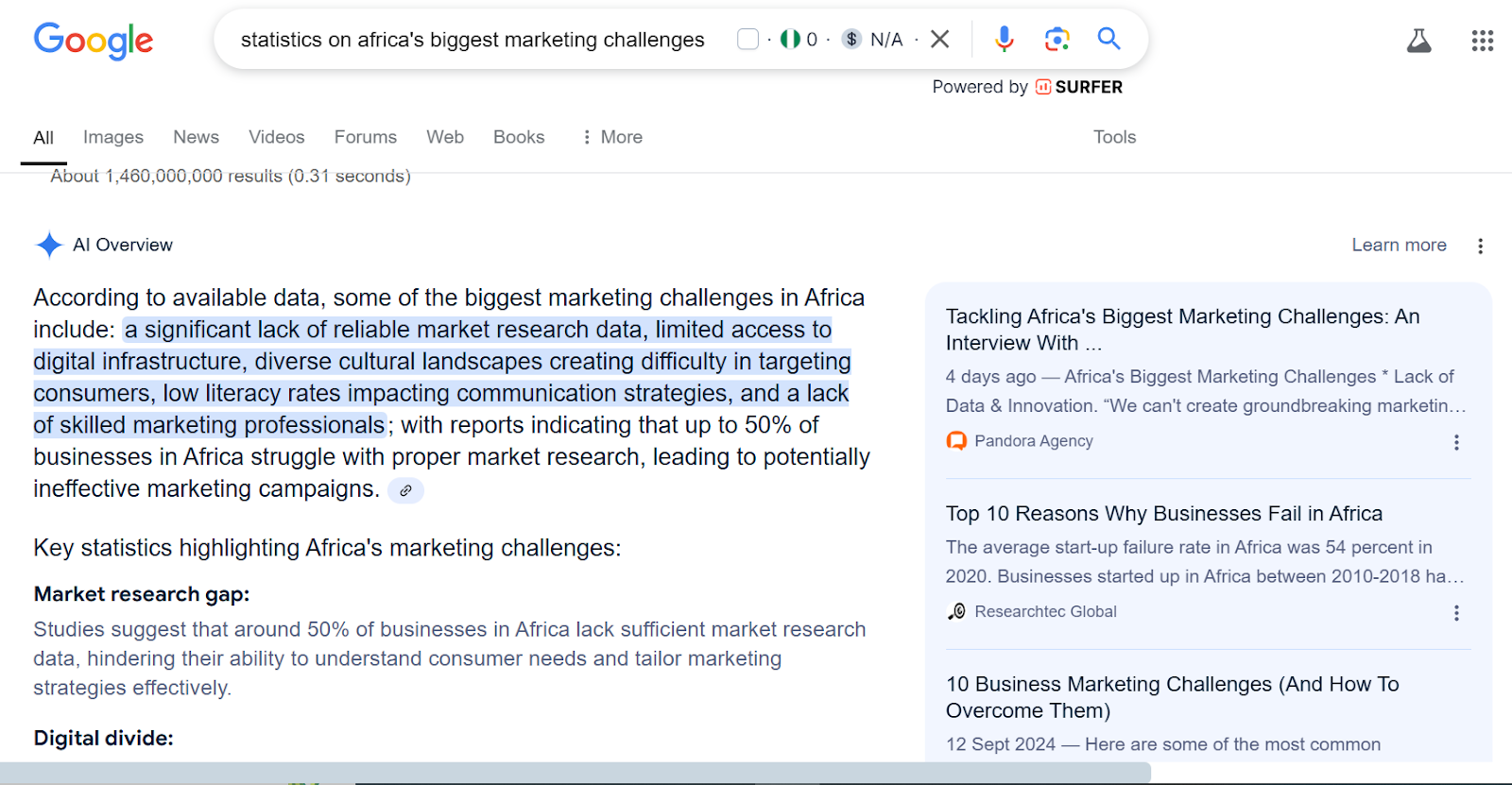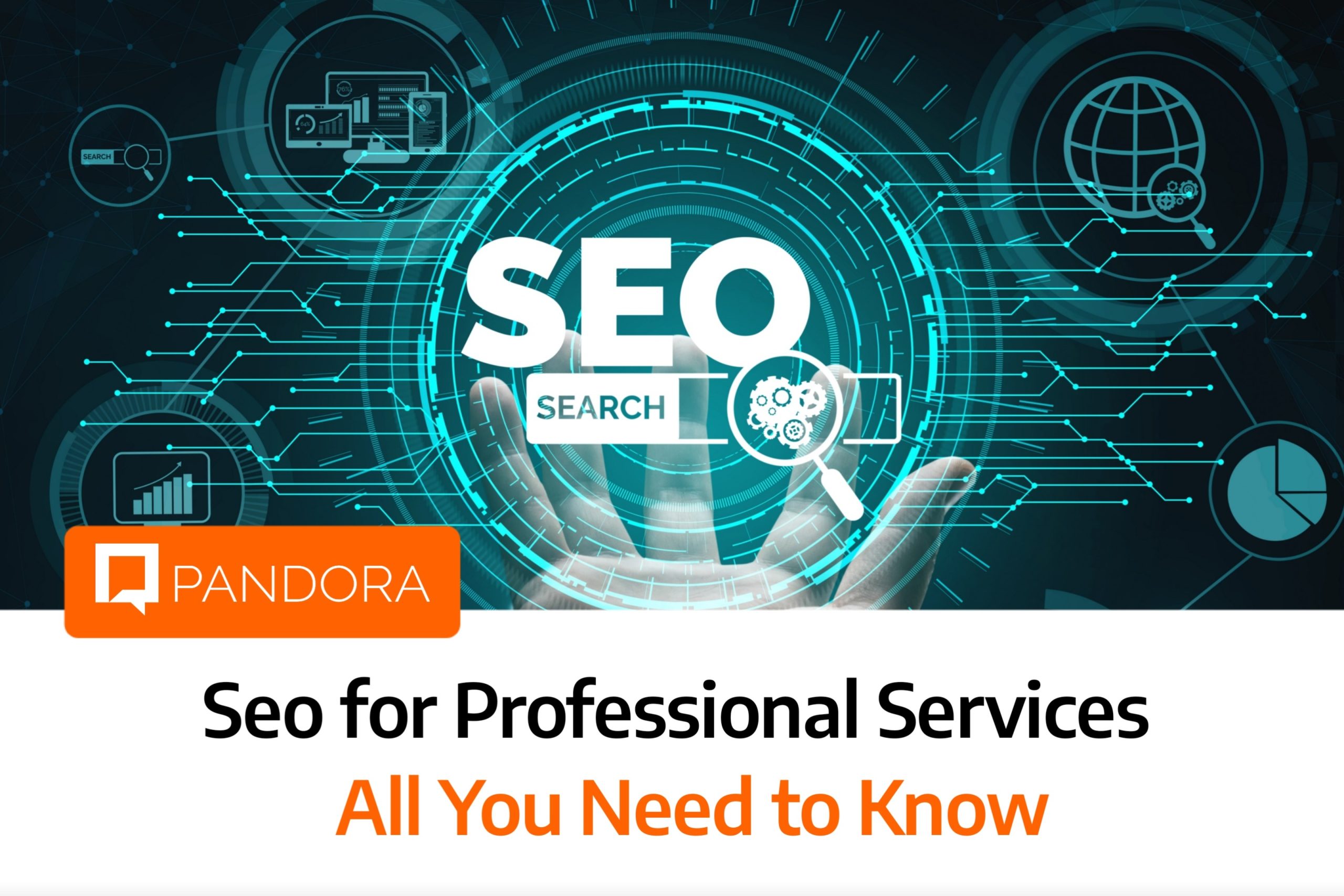Last year, we released a free Brand Guidelines Template at Pandora Agency. Our goal? To help entrepreneurs and personal brands build consistent, compelling identities across all platforms.
But something interesting happened. When we looked through the feedback, a pattern emerged. Most of the downloads weren’t from product-based businesses. They were from professional service providers—lawyers, consultants, creatives, and coaches.

Digging deeper, one stat jumped out: 9 out of 14 of these professionals said they struggle with brand awareness and website traffic.

So we asked ourselves: How do we help service-based businesses attract attention without spending big on ads? The answer: Search Engine Optimization (SEO).
Why Does SEO Matter for Professional Services?
Imagine a potential client searching “best business lawyer in Lagos” or “where to find a marketing consultant in Nairobi.” Who do they see? The truth is: 75% of users never scroll past the first page of Google. If your business isn’t showing up there, you’re practically invisible.
Search Engine Optimization (SEO) helps you do more than just “rank”; it boosts trust, drives qualified traffic, and delivers long-term results without the recurring costs of paid advertising. In fact, SEO leads have a 14.6% close rate, while outbound methods like cold calling convert at just 1.7%.
SEO is crucial for professional services because it allows you to reach potential clients actively searching for your services online. It boosts awareness and credibility and ultimately generates more leads and sales through organic search results.
That’s why we created this guide. To help professional businesses like yours get seen, get clicks, and get hired.
How to Create Awareness for Professional Service Business With SEO
1. Target long-tail keywords
If you’re a small firm or solo consultant, chances are you’re not going to outrank global giants overnight. But here’s the good news: you don’t need to.
The real win? Long-tail keywords. These are more specific, have lower competition, and mirror exactly how people search.
Example: Instead of targeting “business lawyer,” aim for “business lawyer for tech startups in Lagos.”
Here’s why that works:
SemRush reports show that long-tail keywords generate 2.5x more conversions than generic ones. This is because users searching with specific, long-tail keywords are generally further along in the purchase journey.
They have a clearer idea of what they need. For example, “best HR software for remote teams” is more likely to convert than “HR software.” You compete on value, not volume.
Pro Tip: Use tools like Google’s People Also Ask, Ahrefs, or Ubersuggest to find phrases your ideal clients are already typing into search.
2. Use FAQs
Ever wondered why certain businesses pop up in those rich snippet boxes on Google? That’s the power of FAQs: simple, strategic, and incredibly effective.
When you answer high-intent questions on your site (like “How much does a divorce lawyer cost in California?” or “What’s the best way to register a company in Ghana?”), you’re doing two things:
- Positioning your brand as helpful and trustworthy
- Improving your chances of owning valuable Search Engine Result Page (SERP) real estate
According to Moz, FAQs can increase organic traffic by 30% when optimized with the right keywords. And with Google prioritizing useful content, this strategy is gold for professional service providers.
Your FAQS can answer common client questions on your website, such as “How much does an accountant cost in California?” or “Where to hire an accounting firm in New York,” to rank for informational searches.
However, these are just examples. You may need to use keyword research tools to find what people are searching for in your niche and location.
3. Boosts Trust & Authority with High-Quality Content
Professional services thrive on one thing: credibility. And there’s no better way to showcase yours than with quality content.
But not just any content. We’re talking about deep, rich, well-researched insights that tackle real problems. Think case studies, how-to guides, industry stats, expert predictions, and thought leadership pieces.
Why it works:
- B2B companies that blog regularly generate 67% more leads than those that don’t.
- Articles with data and original research get linked to more often, increasing domain authority.
Try this:
Turn a client question into a blog post. Support it with industry research, infographics, and quotes. Then share it across LinkedIn, Reddit, and niche communities.
Not only will you rank, but you’ll also build a reputation as the go-to expert in your space.
To create high-quality content for a professional business, focus on valuable, informative content demonstrating expertise in your field and authentic knowledge.
This must be consistent, well-researched, and aligned with your brand values while actively engaging with your audience. By doing so, you’ll establish yourself as a thought leader through various channels, such as blog posts, articles, social media, and industry publications.
You must go beyond surface-level information and offer insights and data-driven perspectives. Address challenging questions within your industry to showcase your expertise.
Your content can also include e-books, case studies, and video content. You might also leverage communities like Reddit, Quora, and social media platforms to enhance your credibility, which in turn creates more awareness about your brand.
4. Boost Local SEO to Attract Nearby Clients
If you’re a tax consultant in Abuja or a family lawyer in Toronto, chances are most of your clients are local. That’s where local SEO comes in.
The stats say it all:
46% of all Google searches have local intent.
And 76% of people who search for something nearby on their phone visit a business within 24 hours.
To show up in those searches:
- Claim and optimize your Google Business Profile
- Use location-specific keywords like “real estate lawyer in Nairobi”
- Collect and respond to reviews
- List your services on local directories (Yelp, VConnect, Clutch)
Remember to create location-based content, too. For example, “Top 5 Consulting Firms in Kampala” or “How Much Does a Financial Advisor Cost in Lagos?”
These aren’t just keywords; they’re real, local pain points you can solve.
It is also important that you learn how to actively manage online reviews, build local backlinks, and engage with your community through local events and partnerships.
If you do not have reviews already on your Google Business profile, it does help to request them from your customers after offering them satisfactory services.
5. Optimise for Google AI Overview, AI-Powered Search Bots, and Social Media
The way people find information is changing fast. With tools like Google’s AI Overview, ChatGPT, and Bing Copilot, users often get answers without clicking on a site.
That might sound scary, but here’s the twist – you can still win.
What is Google AI Overview?
It’s a new search feature that pulls bite-sized, AI-generated answers from trusted sources, yours included, and places them at the top of search results.

Image of Google AI overview content drawn from different sources, including the Pandora Agency website.
How to Optimize for Google AI Overview:
To get featured on AI Overviews:
- Focus on topical authority by publishing content clusters
- Ensure technical SEO is airtight (mobile-friendly, fast-loading pages)
- Update your content regularly to stay relevant and trustworthy
AI is also powering platforms like Perplexity.ai and ChatGPT’s web browsing tool, which serve as decision-making assistants for millions.
To get featured in AI chat responses:
- Use structured content with clear answers and subheadings
- Stick to factual, data-backed writing
- Include stats, case studies, and original research (AI loves clarity and accuracy)
Think of AI as the new front door of your website. If your content is helpful, well-written, and easy to digest, it’ll make the cut.
Key Takeaway
Trust, authenticity, and authority play a key role when it comes to growing professional businesses. Knowing what your audience wants and providing value is one good way to earn the above credentials.
It’s also important to master how to show up when your business or the services you offer are searched for in the digital space; that is how you increase brand awareness and drive traffic to your business.
If you’re in the professional services space, SEO isn’t just a marketing tactic; it’s your digital handshake with potential clients.
It’s how people find you, trust you, and choose you over the competition.
So, instead of waiting to be discovered, start building your visibility with these five SEO strategies. Create content that educates. Use keywords that convert. Embrace AI and local search.
The right clients are already searching for someone like you. Let’s make sure they find you.






Leave a Reply